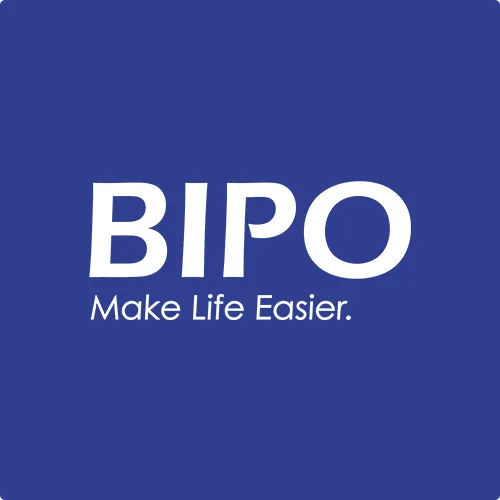Human Resources plays a pivotal role in organisations today. From employee well-being, hiring, onboarding to offboarding and compliance with labour regulations, HR teams are crucial in helping to drive organisational success. As remote teams become more prevalent and workforces span the globe, optimising operational efficiency and maintaining compliance with legal regulations are paramount for businesses.
Our HR checklist empowers HR professionals and provides a structured approach to managing critical HR functions, including recruitment, onboarding, training, and compliance.
Why is the HR Checklist Important?
The HR checklist guides HR activities in the following ways:
| It helps to ensure that standard HR procedures are followed and employees are treated fairly and equally. |
| By ensuring compliance with employment laws and regulations, it empowers HR managers with clear guidance, effectively averting legal and financial penalties. |
| It guides all aspects of workforce management, such as recruitment, onboarding, training, performance management, compensation, and offboarding. |
What makes up the HR Checklist?
The HR checklist addresses all the main functions of HR, from recruitment to offboarding.
1. Recruitment
The recruitment checklist serves as a guide for the hiring team and makes the hiring process seamless. It captures all the necessary recruitment steps and helps keep team members on the same page. With this checklist, there will be no inefficiencies, oversight or wasted time during recruitment.
A recruitment checklist should have the following items:
- Management approval to hire
- Job description for the role: outline of responsibilities, deliverables and requirements
- Job posting and advertising
- Application process, e.g. submitting resumes, filling out an online form, etc.
- Recruitment process: may include competency tests, skills tests, etc. or candidates completing psychometric questionnaires. Also, compile interview questions.
- Screening and interviews
- Communication with successful candidates and other candidates
- References and background checks
2. Onboarding Checklist

Source: Freepik
Onboarding is crucial in today’s cross-generational workplace that blends Gen X, Gen Z, and Millennials. Companies are adopting digital tools like HR Management Systems and mobile apps for efficiency.
For example, BIPO’s HR Management System includes an eSignature option, which is perfect for sending offer letters, reducing manual tasks, and saving time. It also enables new hires to manage and maintain the accuracy of their employee data, including bank account details and tax information, to ensure payroll and tax compliance and a smooth onboarding process.
Increasingly, with remote teams and a globally disbursed workforce, virtual onboardings (and office tours) are now the norm – ensuring a simplified, cost-effective, and structured onboarding.
The onboarding checklist should feature the following:
- Orientation
This includes an introduction to the company policies, regulations, and culture and providing answers and clarifications to any questions the new employee might have.
- Staff documentation
These documents provide information and the forms the new hire must complete. They include the employee handbook, tax forms, personal information forms, employment contracts, etc.
- Provision of work tools and other resources
Examples include laptops, software access, office furniture, and company souvenirs.
- Office tour
A tour of the office and introduction to other staff is a great way to ensure new employees know where to find things and who to go to with specific questions.
3. Payroll, Compensation and Benefits
Efficient payroll management is pivotal in HR operations. Timely and precise payroll processing ensures that salaries and mandatory contributions are disbursed promptly, adhering to local laws. When salaries are delayed, the company’s image suffers, suggesting a lack of priority for employees’ financial well-being and security.
A compensation checklist includes:
- A pay structure for the organisation (after a compensation survey)
- Benefits offered
Some benefits are required by law (e.g. health insurance, workers’ compensation insurance, annual leave), while others are at the company’s discretion, e.g. wellness programs, childcare, stock options, etc.
- Details and eligibility for benefits
- Payroll compliance
Compliance with taxes and employment law regulations
- Payroll processing
Payroll calculations, mode of delivery of employee pay, and payslips administration.
Streamlining payroll, compensation, and benefits is crucial for organisational efficiency. Embracing automated solutions, like BIPO’s cloud-based HRMS with built-in payroll compliance features, enhances accuracy and reduces errors, marking a significant shift towards efficiency.
4. The Performance Management Checklist

Source: Freepik
Employee performance directly impacts the organisation’s bottom line. Productive employees are an asset to any organisation. A robust performance management system identifies skills gaps and provides opportunities for employees to receive the proper training, improving their performance. With such initiatives, employees and the organisation play a role in cultivating an inclusive culture while ensuring mid—to long-term succession planning.
The Performance Management checklist helps assess employees’ performance against organisational standards, identify achievements, and discover team members’ skills development needs. The checklist should include:
- Performance goals and standards
- Performance appraisal tools administration
- Feedback collation and analysis
- Training and development plans
- Performance monitoring
- Disciplinary and termination procedures
5. HR Tech/HRMS Checklist
HR Management Systems are essential for effective business operations and benefit all levels of the organisation. HR Tech implementations are often perceived as time-consuming, expensive, and complex projects. On the contrary, such deployments can be efficient and cost-effective and will continue to deliver positive results long after the implementation is complete. From selecting the right solution, creating an implementation strategy, and setting up a maintenance plan, here are some simple pointers to get you started:
- Determine the HR processes automation is required. Examples of processes are recruitment, onboarding, payroll, leave management, time and attendance management, etc.
- Technical requirements and features needed, e.g. AI-powered features, paperless forms and reports, automated reminders, HR analytics to make predictions about the workforce, etc.
- Change management and communication
- Training and support
- Security and compliance
- Evaluation and optimisation procedures
6. Employee Engagement

Source: Freepik
Employee engagement is critical to organisational success, productivity, and employee satisfaction. A carefully structured approach can improve employee engagement in the workplace. The Employee Engagement Checklist helps to evaluate, measure, and ultimately enhance employee engagement in various areas within the organisation.
- Exceptional onboarding experience
- Training and career development opportunities
- Effective communication and feedback
- Employee recognition mechanisms
- Prioritise employee well-being
7. Employment Laws and Legal Compliance Checklist
The employment relationship is governed by laws in all countries and employers must abide by these legal requirements. Employers need to be updated and informed of any changes to employment laws. They need a legal compliance checklist to guide them through employment laws and regulations to minimise the risk of legal disputes and penalties. Items of the legal compliance checklist include:
- HR policies and procedures
These should be up to date and communicated to employees through staff handbooks.
- Termination procedures
Procedures must be adhered to, with exit interviews, final paychecks, and severance duly paid.
- Diversity and Inclusion
Diversity in hiring, equal pay, accommodations for disability should be included/updated.
- Employment law compliance
Adherence to laws on anti-discrimination, anti-harassment, employee classification, equal employment, etc.
In addition, with BIPO’s global Employer of Record service, companies looking to scale and expand into new markets can do so seamlessly. Across 160+ countries, we’ll handle all legal and compliance issues relating to employment worldwide, ensuring you can focus on what truly matters – establishing your business operations and cultivating a strong employer brand.
Conclusion
With HR teams taking on more strategic responsibilities within the organisation, HR checklists are valuable tools that streamline HR processes and enhance efficiency. A checklist also helps maintain consistency, mitigate risks, and uphold standards in deploying HR tasks.
The use of HR checklists facilitates smoother operations. It builds a culture of accountability and excellence within the HR department, which leads to the overall success and growth of the organisation.



































